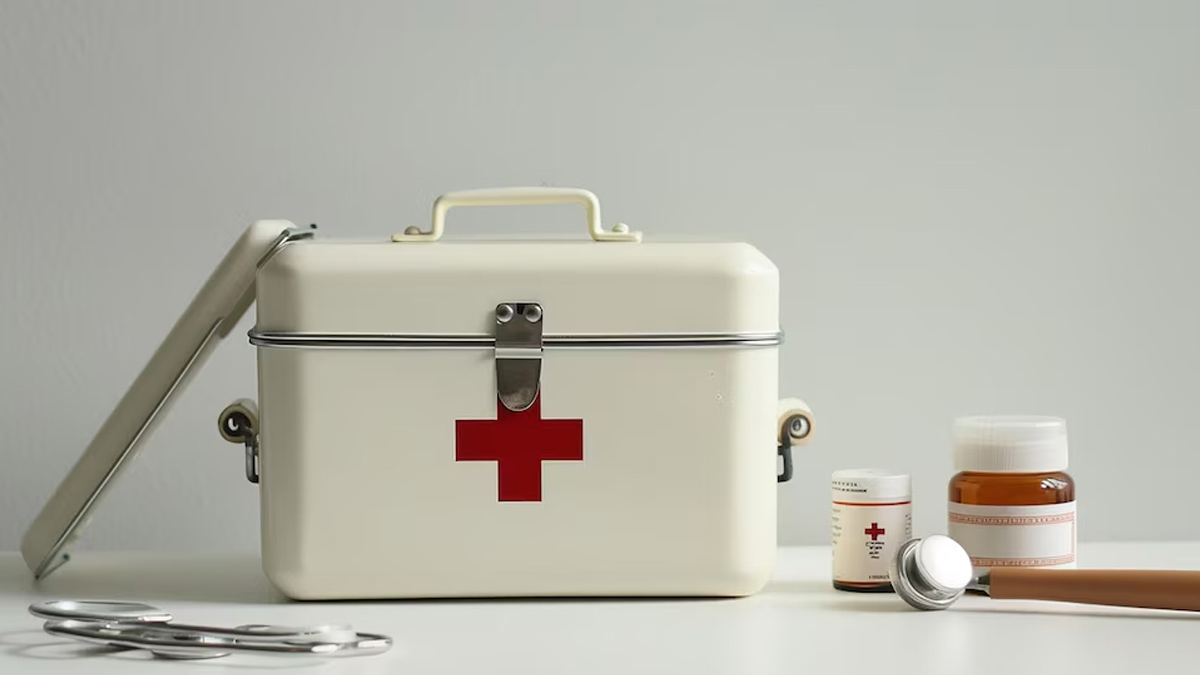
Incorporating herbal remedies into your first aid kit is a wonderful way to harness the power of nature for common ailments. A well-stocked herbal first aid kit can provide you with natural, effective solutions for a variety of health issues, from minor cuts and bruises to digestive disturbances. Here’s a guide to creating your own herbal first aid kit.
Table of Content:-
Why an Herbal First Aid Kit?
Herbal first aid kits offer a holistic approach to health, emphasizing prevention and natural healing. Unlike synthetic medications, herbs often come with fewer side effects and can be grown at home or purchased from health stores. Plus, they connect us with traditional healing practices that have been used for centuries.
Essential Components of an Herbal First Aid Kit
Here are some herbs that can help you alleviate the symptoms of common ailments.
Aloe Vera Gel

Uses: Soothes burns, sunburns, cuts, and insect bites.
Benefits: Aloe vera is known for its anti-inflammatory and cooling properties. It's excellent for skin healing and can also provide relief from itching and pain.
Calendula Salve
Uses: Heals minor cuts, scrapes, and rashes.
Benefits: Calendula, or marigold, is renowned for its skin-soothing and anti-inflammatory properties. It's gentle enough for use on sensitive skin and can also be used to relieve diaper rash in babies.
Also read: Secret To Clear And Glowing Skin: Benefits Of Corn Flour And DIY Face Packs
Lavender Essential Oil

Uses: Treats burns, insect bites, headaches, and stress.
Benefits: Lavender oil is incredibly versatile. It has antiseptic and anti-inflammatory properties and is also known for its calming effects on the nervous system.
Tea Tree Oil

Uses: Disinfects cuts and scrapes, treats fungal infections.
Benefits: Tea tree oil is a potent antimicrobial and antifungal agent. It's effective in preventing infections and can also be used to treat acne and athlete’s foot.
Ginger Capsules or Powder

Uses: Alleviates nausea, motion sickness, and digestive issues.
Benefits: Ginger is a powerful antiemetic and digestive aid. It's effective for relieving nausea and can also help with inflammation and pain.
Peppermint Essential Oil or Tea
Uses: Soothes headaches, digestive issues, and respiratory problems.
Benefits: Peppermint is known for its cooling and calming effects. It can help relieve tension headaches and digestive discomfort and is also effective in clearing nasal congestion.
Also read: 5 DIY Cooling Face Masks To Beat The Heat

Chamomile Tea
Uses: Calms anxiety, aids sleep, soothes digestive upset.
Benefits: Chamomile is widely known for its calming effects. It's excellent for reducing anxiety, promoting sleep, and soothing the digestive tract.
Tips for Using Your Herbal First Aid Kit
Start Small: If you're new to herbal medicine, start with a few basic herbs and gradually expand your kit.
Educate Yourself: Read books or take courses on herbal medicine to deepen your knowledge.
Consult a Professional: If you have any doubts about using a particular herb, consult with a qualified herbalist or healthcare provider.
Creating your own herbal first aid kit is an empowering step towards natural health and self-care. By incorporating these natural remedies, you can take charge of your well-being in a holistic and sustainable way.
Also watch this video
How we keep this article up to date:
We work with experts and keep a close eye on the latest in health and wellness. Whenever there is a new research or helpful information, we update our articles with accurate and useful advice.
Current Version